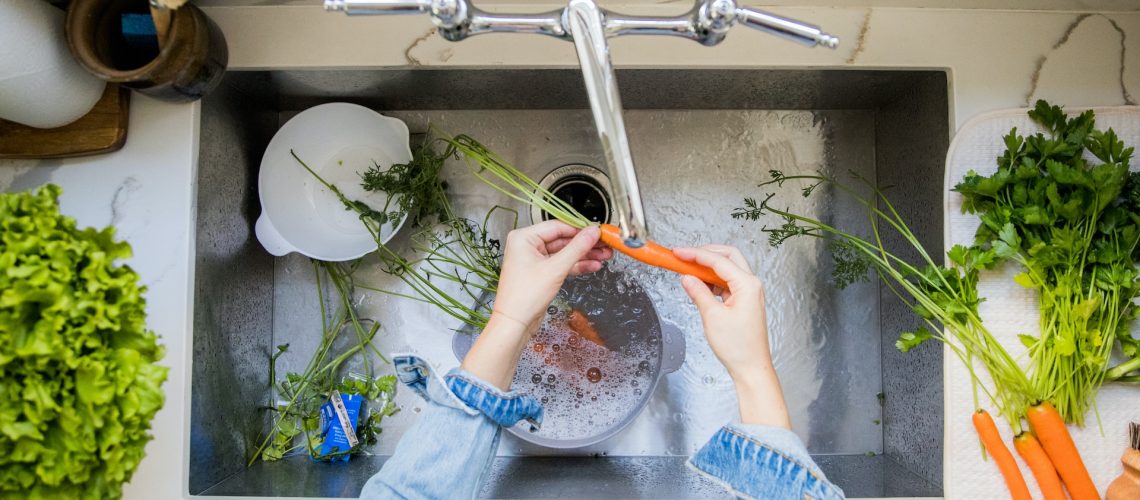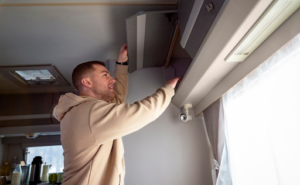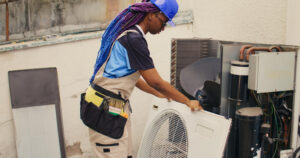Menu

Common Kitchen Plumbing Problems and How to Prevent Them
The kitchen is the heart of the home, a space where families gather to cook and enjoy meals together. However, it’s also a place where multiple plumbing issues can arise due to frequent usage and the complex nature of kitchen appliances. Knowing how to identify and prevent common kitchen plumbing problems is essential for maintaining a functional and comfortable home.
From clogged sinks and leaking faucets to malfunctioning garbage disposals and dishwasher problems, kitchen plumbing issues can be both frustrating and overwhelming for homeowners. If left unaddressed, minor problems can escalate into more significant issues, leading to costly repairs or even potential damage to your home. By understanding the most common kitchen plumbing problems and following preventative measures, you can protect your kitchen’s plumbing and ensure it remains in excellent working condition.
In this article, we will discuss common kitchen plumbing issues, offer effective prevention tips, and share advice on when to seek professional help. With this information and the support of Bromac, you can confidently navigate kitchen plumbing challenges and maintain a safe, functional, and enjoyable space in your home. And remember to include a CTA (Call to Action) at the end of the article, encouraging readers to reach out to Bromac for all their kitchen plumbing needs.
Frequent Kitchen Plumbing Issues and Their Causes
When it comes to kitchen plumbing problems, there are several common issues that homeowners encounter, including:
1. Clogged Sink Drains
Clogged drains are one of the most common kitchen plumbing problems. They often occur when grease, food particles, and other debris accumulate in the pipes, obstructing the water flow. Over time, this buildup can lead to slow-draining sinks or even complete blockages.
2. Leaking Faucets
Leaking faucets are not only annoying but also wasteful and can significantly contribute to higher water bills. Often, a worn-out cartridge, deteriorated O-rings, or damaged washers can cause the faucet to leak.
3. Garbage Disposal Malfunctions
Garbage disposals can be a convenient and efficient kitchen appliance, but they are also prone to issues. Common garbage disposal problems include jamming or clogging due to improper usage, leaking seals, or a tripped overload switch.
4. Dishwasher Problems
Dishwashers can encounter several plumbing-related issues, such as leaks, drainage problems, or insufficient water supply. These can result from loose connections, clogged hoses, or defective components.
Preventative Measures to Avoid Kitchen Plumbing Problems
To keep your kitchen’s plumbing system in optimal condition, consider implementing these preventative measures:
1. Be Mindful of What Goes Down the Drain
To prevent clogs, avoid pouring grease or oil down the sink, as they can solidify and accumulate in the pipes. Place a sink strainer over the drain to catch food particles, and routinely clean it to ensure unobstructed water flow.
2. Perform Regular Faucet Maintenance
Regularly inspect your faucet for signs of wear and tear, and replace any worn components as needed. Additionally, consider installing a water-saving aerator to reduce water usage while maintaining adequate pressure.
3. Use Your Garbage Disposal Correctly
To prolong the life of your garbage disposal and avoid clogs, use it only for soft scraps and small amounts of food. Run cold water before, during, and after using the disposal to flush debris through the pipes. Avoid putting fibrous or stringy materials like corn husks and celery in the disposal, as they can wrap around the blades and cause jams.
4. Maintain Your Dishwasher
Regularly clean your dishwasher’s filter to prevent buildup and ensure proper drainage. Inspect the dishwasher hoses for any signs of wear or leaks, and replace them as necessary. Additionally, run an empty cycle with dishwasher cleaner or white vinegar to help remove residue and maintain optimal performance.
When to Seek Professional Help
Although some kitchen plumbing issues can be resolved with simple DIY solutions, certain problems may require the assistance of a professional plumber:
1. Persistent Clogs
If repeated attempts to clear a clogged sink drain prove unsuccessful, it’s best to contact a professional plumber. Persistent clogs may indicate a more severe issue deeper within the pipe system.
2. Extensive Leaks
For significant leaks or issues involving the main water line, it’s crucial to seek professional help. Attempting to fix these problems without expert guidance can lead to costly mistakes and further damage.
3. Garbage Disposal or Dishwasher Malfunctions
When garbage disposal or dishwasher issues extend beyond simple fixes like clearing jams or tightening connections, it’s wise to enlist a professional. A skilled plumber can accurately diagnose and resolve appliance malfunctions, ensuring your kitchen remains functional and efficient.
Conclusion
Understanding common kitchen plumbing problems and adopting preventative measures is essential for maintaining a well-functioning kitchen space. However, when plumbing issues extend beyond DIY solutions, it’s important to seek the assistance of a trusted professional like Bromac. As Abbotsford’s quick, transparent, and high-quality service plumber, our team is dedicated to providing top-tier plumbing services tailored to your kitchen’s needs.
As Abbotsford’s quick, transparent, and high-quality service plumber, Bromac is committed to helping homeowners address and avoid kitchen plumbing issues by sharing expert advice and offering exceptional plumbing services. Our skilled and reliable team is committed to keeping your kitchen plumbing system in optimal condition, ensuring a safe and comfortable home environment for you and your family. Should you encounter any plumbing issues in your kitchen or require expert guidance on plumbing maintenance, don’t hesitate to reach out to us today to schedule a service visit and experience the Bromac difference!


